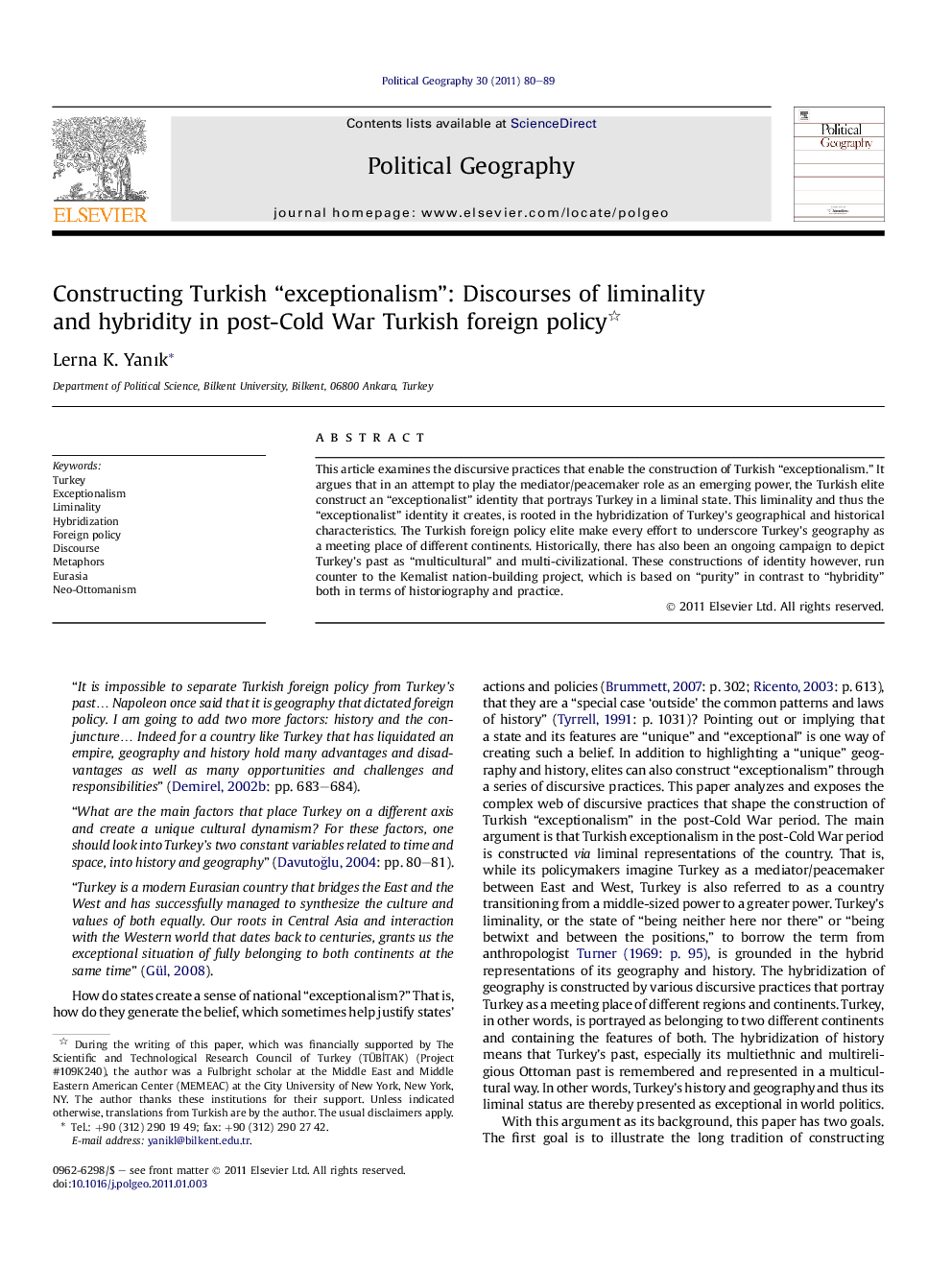| کد مقاله | کد نشریه | سال انتشار | مقاله انگلیسی | نسخه تمام متن |
|---|---|---|---|---|
| 1062096 | 947934 | 2011 | 10 صفحه PDF | دانلود رایگان |

This article examines the discursive practices that enable the construction of Turkish “exceptionalism.” It argues that in an attempt to play the mediator/peacemaker role as an emerging power, the Turkish elite construct an “exceptionalist” identity that portrays Turkey in a liminal state. This liminality and thus the “exceptionalist” identity it creates, is rooted in the hybridization of Turkey’s geographical and historical characteristics. The Turkish foreign policy elite make every effort to underscore Turkey’s geography as a meeting place of different continents. Historically, there has also been an ongoing campaign to depict Turkey’s past as “multicultural” and multi-civilizational. These constructions of identity however, run counter to the Kemalist nation-building project, which is based on “purity” in contrast to “hybridity” both in terms of historiography and practice.
► Turkish elites portray Turkey as a mediator and an emerging power in an ‘in between’ location.
► This state of ‘being between positions’, i.e. liminality, in all regards, is presented as exceptional.
► This exceptionalism is grounded in the hybridization of Turkey’s geography and history.
► Hybridization of geography is the portrayal of Turkey as belonging to two different continents.
► Hybridization of history is selective remembering of the past as “multicultural.”
Journal: Political Geography - Volume 30, Issue 2, February 2011, Pages 80–89